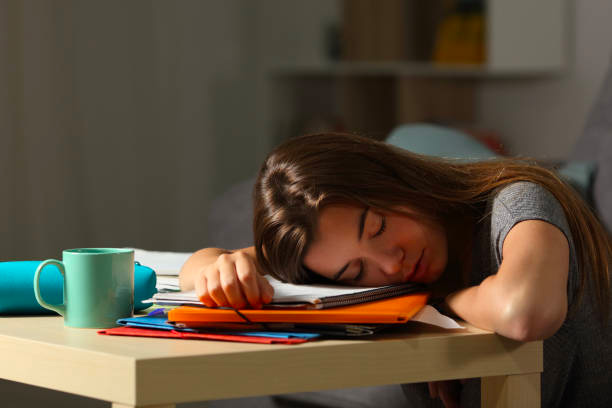Sleep Tips for College Students that Will Help You Succeed
Do you often feel tired and stressed in college? A lack of sleep may be the culprit. Studies have shown that a good night’s sleep is essential for academic success. Most college students deal with sleep deprivation in some form or another and according to a 2021 Harvard study, 70%-96% of students get less than the suggested 8 hours of sleep per night.
Factors That Make It Difficult for College Students to Get Sleep
There are many college factors that make it difficult to get sleep.
Academic Work Load
One factor is the stress of academics. College students often have to juggle multiple classes, homework assignments, and exams. This can lead to late nights spent studying and early mornings spent in class.
Socializing

Another college factor that can cause sleep deprivation is socializing. College campuses are full of opportunities to meet new people and go out on the town. This can result in late nights out and less time for sleeping.
Close Quarters Noise

Finally, many college students live in dormitories or other close quarters with roommates. This can lead to noise levels that make it difficult to fall asleep or stay asleep throughout the night. All of these college factors can impact a student’s ability to get enough sleep each night.
Long Term Health Effects
While the lack of sleep has little short term health effects, some of the long term health issues can be:
- Obesity
- Diabetes
- Heart disease
- High blood pressure
- Stroke
- Memory problems
- Depression
Sleep Tips for College Students for a Good Night’s Sleep

If you aren’t getting enough sleep, there are a few things you can do to try and improve the situation such as;
Establish a regular sleep schedule and stick to it as much as possible
While it’s difficult at times to set a schedule for your sleep when your friends are pulling you into social gatherings and school functions all the time, try to set a regular sleep schedule during the week so you can be fresh for your classes the next day.
Create a relaxing bedtime routine to help you wind down before sleep
When we can create a relaxing routine before bed, it helps our mind to slow down and prepare for bed. Try things like breathing exercises, stretching, listening to music or writing in a journal to calm your mind prior to bedtime.
Avoid caffeine and alcohol before bed
Caffeine and alcohol are both stimulants that can keep you awake at night. Try to avoid them in the evening hours so you can have a better chance of falling asleep when you finally hit the pillow.
Limit screen time in the hours leading up to sleep
This is a hard one for most college students as they basically live on their phones but a key to getting a good night’s sleep is putting aside your phone at night. It’s very difficult to fall asleep with a bright light in your eyes.
Get some exercise during the day to help promote better sleep at night
Exercise is a great way to release energy and tension from your body. It also helps to regulate our sleep patterns. Try to get at least 30 minutes of exercise during the day, but not too close to bedtime or it may keep you up at night.
Get professional help
If you find that you are still struggling to get enough rest, don’t hesitate to reach out for help from a professional. There are many resources available on campus to support students with their mental health, including counseling services. Getting adequate sleep is essential for your overall wellbeing, so don’t be afraid to seek assistance if you need it.
In Conclusion
There are many college factors that can make it difficult to get enough sleep. However, there are also many things you can do to combat sleep deprivation. If you are struggling to get enough rest, try implementing some of the tips above or seek professional help. Your mental and physical health will thank you for it!



